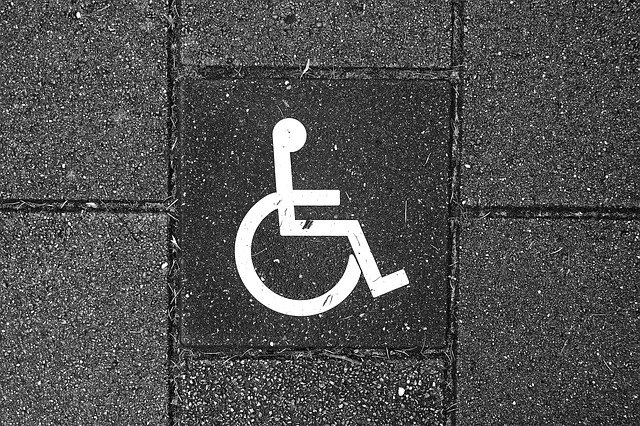Employers are under a legal obligation to make reasonable adjustments for disabled employees, and failure to comply is a form of unlawful disability discrimination.
We outline below the types of adjustments that employers are expected to make as well as some best practice advice to protect your business from potential discrimination claims.
What is the duty to make reasonable adjustments?
The Equality Act 2010 places employers under a duty to make reasonable adjustments, where:
- A policy, rule or practice of the business places a disabled person at a substantial disadvantage;
- A physical feature places a disabled person at a substantial disadvantage; or
- A disabled person would be at a substantial disadvantage without the provision of an auxiliary aid.
Therefore, employers are expected to make any reasonable adjustments that would facilitate a disabled employee’s work or enable them to return to work if they are on long-term sickness absence.
It is important to note that the duty to make reasonable adjustments applies at all stages of employment, including during the recruitment process.
Employees and job candidates can bring a disability discrimination claim in the employment tribunal on the grounds that the employer failed to make reasonable adjustments.
There is no length of service requirement to bring this type of claim and there is also no cap on the level of compensation that can be awarded, so disability discrimination claims can be a significant cost to your businesses.
Knowledge of disability
The duty to make reasonable adjustments will not apply if you didn’t know that the employee or job candidate in question was disabled and you could not reasonably have been expected to know about their disability.
However, employers are expected to make a reasonable effort to determine whether an individual meets the definition of disabled under the Equality Act 2010.
Therefore, the fact that the employee has not disclosed to you that they are disabled, will not automatically allow you to rely on the no knowledge exemption.
If you are made aware of a medical condition that may render the employee disabled, you should contact the employee’s doctor or occupational health for medical advice on whether they are disabled for employment law purposes.
What are ‘reasonable adjustments’?
A ‘reasonable adjustment’ is any step or measure an employer can reasonably take to prevent a disabled person being subjected to a substantial disadvantage at work.
The Equality Act Code of Practice lists common examples of reasonable adjustments that employers should make, depending on the circumstances, which include:
- Making adjustments to premises
- Giving information in an accessible format
- Sharing some of the disabled employee’s duties with another worker
- Redeploying the disabled employee to an alternative role within the business
- Adjusting the disabled employee’s hours of work
- Changing the disabled employee’s place of work or allowing them to work from home
- Allowing time off work for the disabled employee to attend medical appointments
- Providing or modifying equipment
- Modifying company policies for the disabled employee, e.g. disciplinary policy, poor performance policy and absence management procedure
There is no defence or justification for failing to make reasonable adjustments, so you would need to prove that the adjustments were not reasonable to avoid liability for claims.
When deciding whether an adjustment is reasonable, the tribunal will consider the following factors:
- How effective it would be at preventing the disabled person’s substantial disadvantage
- The practicability of the adjustment
- The cost and disruption the adjustment involves
- The size and available resources of the employer
Making reasonable adjustments
The tribunal expects employers to adopt a holistic approach and implement a range of measures where multiple adjustments are reasonable in the circumstances.
Although the employee’s views and any measures they put forward should be considered, the onus is placed upon the employer to propose and make reasonable adjustments.
For example, the tribunal held that an employer had failed to make reasonable adjustments by sending the disabled employee vacancies for alternative roles instead of actively identifying suitable roles for her to take on.
You should discuss proposed adjustments with the employee in question and obtain their consent before you make any changes to their employment terms or working arrangement.
It may also be necessary to consult with other affected staff members, for example, where you propose to re-allocate some of the disabled person’s duties to colleagues.
In some cases, it may be reasonable to offer the disabled person more favourable treatment than other employees, if this is necessary to eliminate the substantial disadvantage.
Get medical advice
To avoid the risk of expensive claims, it is best practice to seek medical advice from the individual’s GP or occupational health if they disclose a medical condition that may possibly amount to a disability under the Equality Act 2010.
Not only will the outcome of such a report provide you with a medical opinion on whether the individual is disabled, and therefore whether you need to make reasonable adjustments, but it will also give you an idea of the types of adjustments that may be suitable in the circumstances.
Recruitment
As explained above, the duty to make reasonable adjustments also applies during the recruitment process.
Therefore, it would be best practice to state in any job advertisements or application forms that reasonable adjustments will be made to support and accommodate disabled applicants as well as ensuring that all information is accessible.
Before conducting any interviews or psychometric testing, you should ask applicants whether they require any adjustments to be made.
If an applicant discloses a disability to you during this process, this should not be considered at any level of decision-making other than making adjustments, as this would be unlawful discrimination.
Training
It is important that managers understand how to support disabled employees at work by making reasonable adjustments.
You could offer training on these issues so that managers know to get medical advice and consult with the individual to determine what measures are appropriate in the circumstances.
It may also be beneficial to review company policies and procedures and consider the impact that these may have on disabled employees and ways that they can be modified.





